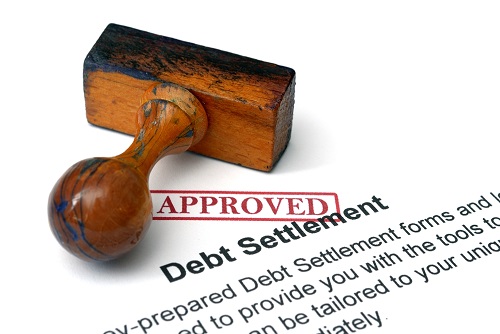In today’s financial world, many individuals find themselves struggling with loan repayments due to unforeseen circumstances such as loss of employment, medical emergencies, or simply the inability to keep up with mounting debts. Fortunately, there are mechanisms in place that allow borrowers to settle their loans, often at a reduced amount, providing them with a pathway to financial recovery. Understanding your rights under bank loan settlement rules is crucial in navigating this process successfully, avoiding further financial pitfalls, and even protecting yourself from potential bank harassment.
In this blog post, we will explore your rights under the loan settlement rules, discuss the process of loan settlement, and provide you with practical tips on how to enforce these rights in case of disputes or unfair treatment by financial institutions.
What is Loan Settlement?
Loan settlement refers to the process of negotiating with your lender (bank or financial institution) to settle a debt for less than what you owe. The goal of loan settlement is typically to make a lump-sum payment that is lower than the full amount due on your loan or to come up with a more manageable repayment plan. This may occur when you’re facing financial difficulties, and the lender agrees to settle the debt to recover at least a portion of the loan.
In most cases, a loan settlement can take place after the borrower has missed a series of payments or when the borrower is no longer able to meet the original terms of the loan agreement. Banks and financial institutions typically prefer settling the loan to avoid the lengthy, expensive, and uncertain process of pursuing legal action.
However, loan settlement comes with specific rights and obligations that borrowers need to understand before entering into negotiations.
Your Rights Under Bank Loan Settlement Rules
As a borrower, you have certain rights when it comes to loan settlements. These rights are designed to protect you from unfair practices by lenders, provide transparency in the settlement process, and ensure that you are treated fairly during negotiations. Some key rights include:
1. Right to Be Informed of Your Options
Before initiating any loan settlement process, you have the right to be fully informed about your available options. If you’re facing financial difficulty, banks or financial institutions are obligated to provide you with information about possible settlement terms, alternatives like restructuring your loan, or even suggesting that you consult with a financial advisor.
Under the Consumer Credit Act, financial institutions must be clear in their communication with you regarding the potential consequences of loan settlement, such as impacts on your credit score and the full amount of the settlement.
2. Right to Negotiate the Settlement Terms
Loan settlement is not a one-size-fits-all process. You have the right to negotiate the terms of the settlement. Whether it is negotiating a reduced lump sum or arranging a manageable payment plan, you can advocate for what works best for your situation. The bank or lender cannot impose settlement terms that are unfair or overly burdensome.
However, it is important to note that banks will typically require evidence of your financial hardship, including your income, expenses, and any other liabilities. This information will help the lender determine a fair settlement amount.
3. Right to Fair Treatment and Transparency
Banks are legally bound to treat all borrowers fairly during the loan settlement process. They cannot mislead or harass you into making decisions that are not in your best interest. Transparency is a key component of any loan settlement negotiation. The lender must clearly disclose all terms, fees, and potential consequences involved in settling the debt.
In addition, lenders must be clear about any future obligations or conditions that might arise once the settlement is completed. For example, if there are any hidden charges or if a settlement will result in legal action being taken against you for unpaid amounts, you have the right to know this upfront.
4. Right to Avoid Harassment
One of the most common issues faced by borrowers is bank harassment during the loan settlement process. Harassment can take the form of constant phone calls, threatening language, and even physical visits. This type of behavior is prohibited under the law.
According to the Fair Debt Collection Practices Act (FDCPA) in some jurisdictions, debt collectors (which may include representatives of banks) are restricted in the ways they can contact you. If you feel harassed or pressured, you have the right to report the behavior to the relevant authorities or seek legal action.
Banks and lenders must adhere to ethical practices and provide you with reasonable time to evaluate settlement offers, without coercion or intimidation.
5. Right to Seek Legal Advice and Representation
If you are unsure about the loan settlement process or believe that your rights are being violated, you have the right to seek legal advice. You can consult with a lawyer or a professional specializing in debt settlement, who can guide you through the legalities of the process, protect your interests, and help you enforce your rights.
In some cases, you may also choose to hire a loan settlement company to handle the negotiation on your behalf. However, it’s crucial to ensure that the company you hire is reputable and experienced, as this can significantly impact the outcome of your settlement.
How to Enforce Your Rights in the Loan Settlement Process
While understanding your rights is important, knowing how to enforce them can make the difference between a successful loan settlement and falling victim to unfair practices. Below are some steps you can take to ensure that your rights are upheld during the settlement process:
1. Keep Documentation of All Communications
Throughout the loan settlement process, it’s essential to keep a record of all communications with your lender. This includes emails, phone calls, letters, and any other documents related to your settlement. This documentation will serve as evidence in case you need to dispute any actions taken by the bank or prove that the terms of the settlement were violated.
If the lender has communicated in an inappropriate or threatening manner, or if they refuse to offer reasonable settlement terms, you can use this documentation as proof of harassment or unfair treatment.
2. Request Written Confirmation of Settlement Terms
Once a loan settlement is agreed upon, always request written confirmation of the settlement terms. This document should outline the agreed-upon amount, payment schedule, and any additional fees or penalties. Having this written confirmation protects you from any potential changes made by the lender later on, ensuring that both parties are on the same page.
It’s important to verify the terms carefully before signing any settlement agreement to ensure that they align with your discussions. If there is any ambiguity or uncertainty, do not hesitate to seek legal advice.
3. Report Unfair Practices
If you believe that a bank is not adhering to the loan settlement rules or is engaging in harassment, you have the right to report their actions to the relevant authorities. You can file a complaint with the Consumer Financial Protection Bureau (CFPB), the banking regulator, or a consumer protection agency in your jurisdiction.
In addition, you may file a formal complaint with the bank’s internal ombudsman or dispute resolution department. Most banks are required to have a grievance redress mechanism in place to handle such complaints.
4. Legal Action for Unfair Practices
If all other options fail, you may need to pursue legal action. If a bank has violated your rights under the loan settlement rules or has engaged in harassment, you can file a lawsuit. You may be entitled to compensation for damages caused by unlawful actions or unfair practices.
A lawyer specializing in debt settlement or consumer rights can assist in taking legal action to enforce your rights and seek a favorable resolution.
5. Consider Using a Debt Settlement Professional
If you feel overwhelmed by the loan settlement process, consider hiring a professional debt settlement company or lawyer to represent you. A reputable professional will have the experience and knowledge to negotiate effectively with lenders, ensuring that you receive fair treatment and the best possible terms for your settlement.
It’s important to research and choose a trustworthy firm or lawyer, as some companies may use questionable tactics that can end up costing you more in the long run.
Conclusion:-
Loan settlements can provide much-needed relief for individuals struggling with debt, but it’s essential to understand your rights under the bank loan settlement rules and how to enforce them effectively. By knowing your options, negotiating fairly, and ensuring transparency, you can protect yourself from harassment, avoid unfair treatment, and ultimately settle your loan in a way that allows you to move forward financially.
If you are facing financial hardship or experiencing difficulty in loan settlement negotiations, don’t hesitate to seek professional advice or legal representation to ensure that your rights are protected. In the end, the goal of a loan settlement is to help you regain financial stability and put you back on the path to a brighter future.
Get in touch with us today at www.Settleloan.in and embark on your path to financial freedom



